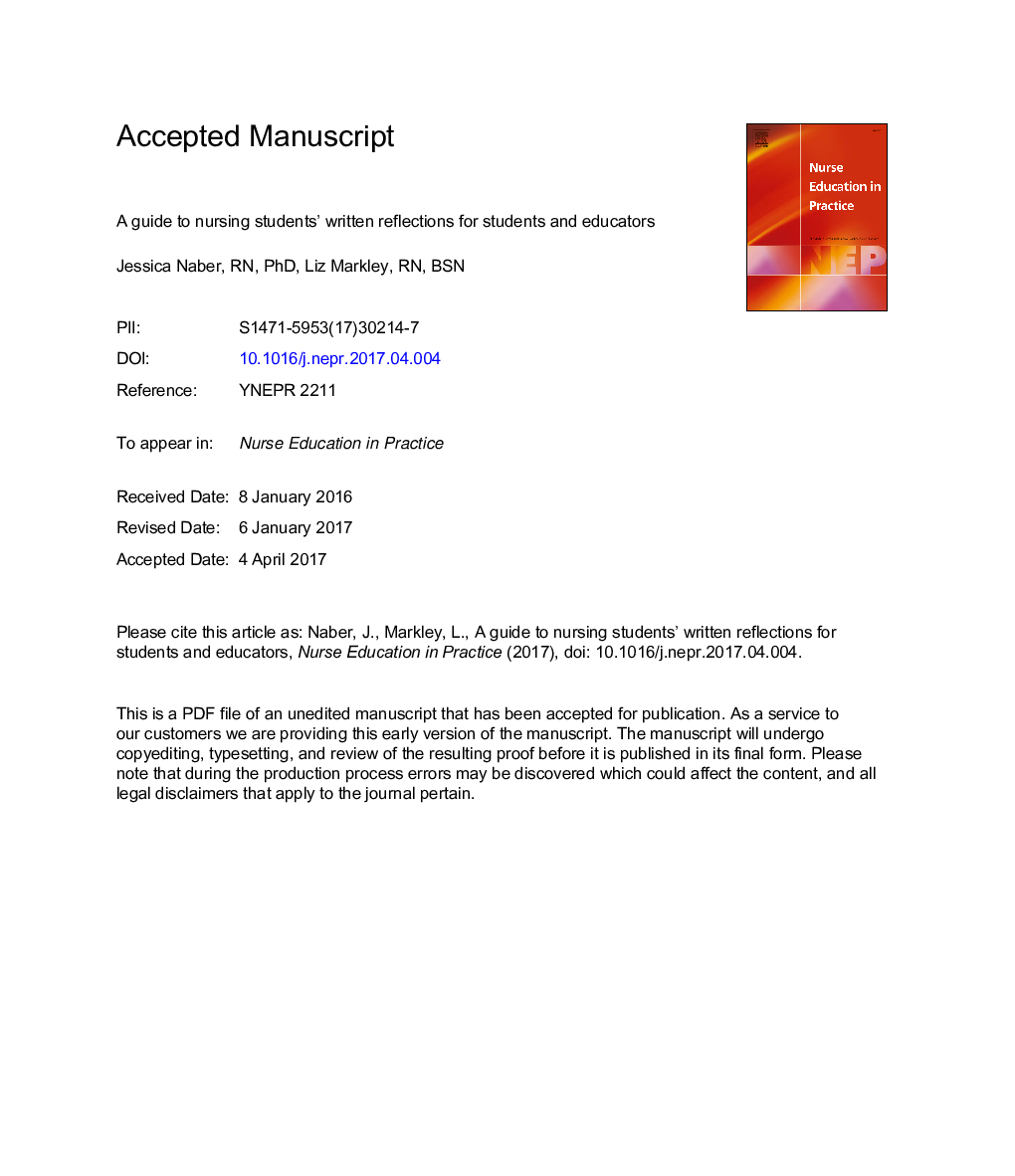| Article ID | Journal | Published Year | Pages | File Type |
|---|---|---|---|---|
| 4940418 | Nurse Education in Practice | 2017 | 16 Pages |
Abstract
Experiences from the clinical setting are ideal for building critical thinking skills if reflection is used as a teaching tool. Reflective writing is the purposeful and recurring inspection of thoughts, feelings, and occurrences that coordinate with experiences during practice. Reflecting on clinical experiences develops critical thinking ability, fosters self-understanding, facilitates coping, and leads to improvement in clinical practice (Kennison, 2006). Reflective writing allows students to combine clinical experiences and takeaways with didactic material to better understand both practice and instruction. Reflective writing is defined as an assignment that is focused on students' experiences, like textbook readings, clinical experiences, or group activities, that highlights what the student has taken from the activity (McGuire et al., 2009). This study will explore reflective writing from the perspective of the nursing student and the nurse educator. The following questions will be answered: What are the benefits of reflective writing? Why would nurse educators want to use reflective writing in their nursing courses, both clinical and didactic? What are the barriers to using reflective writing for students and educators? What is the role of the nurse educator in student reflection?
Related Topics
Health Sciences
Nursing and Health Professions
Nursing
Authors
Jessica RN, PhD, Liz RN, BSN,
